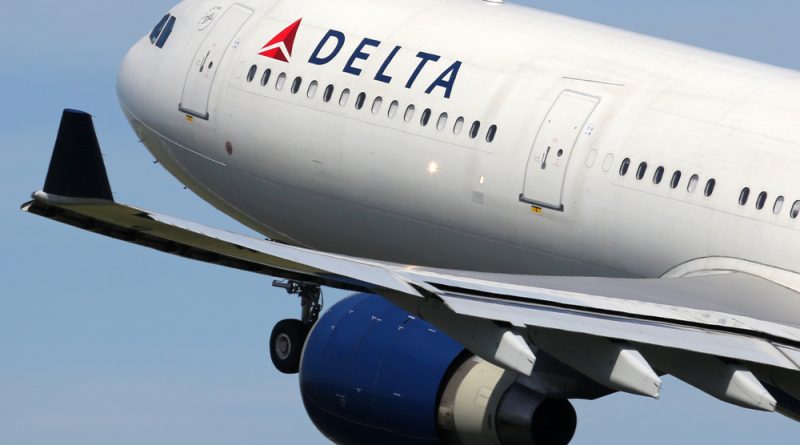Hundreds of US Flights Canceled for Fourth Straight Day Amid Global Tech Outage
The ripple effects of a global tech outage continue to disrupt air travel, with hundreds of U.S. flights canceled on Monday as airlines, particularly Delta Air Lines, struggle to recover. The outage, triggered by a faulty software update, has caused massive delays and left travelers stranded at airports nationwide.
Delta Air Lines is under significant pressure to restore normal operations, having canceled the majority of U.S. flights since the outage began. U.S. Transportation Secretary Pete Buttigieg expressed frustration with Delta’s slow recovery, while Delta’s CEO, Ed Bastian, apologized to affected travelers. According to flight tracking site FlightAware, over 1,000 flights into, within, or out of the United States were canceled on Monday, with more than 9,000 delays. Since Friday, Delta has canceled over 4,400 flights, including more than 950 on Monday alone.
Delta has not commented on the exact numbers, but Bastian updated customers on Sunday, stating that the company is working tirelessly to restore operations. On Monday, he reassured employees in a video message that efforts were ongoing around the clock to resolve the issues. Delta, headquartered in Atlanta, is offering SkyMiles, vouchers, and the option to request refunds as compensation to affected customers.
Passengers Nicole DaSilva, Tiffany Denlinger, and Melissa Levine found themselves stranded at Hartsfield-Jackson Atlanta International Airport on Monday with no clear way home. Returning from a vacation in Athens, Greece, they have been trying to get back to Arizona for two days, accumulating canceled flight tickets. Denlinger, who has an electronic tracker in her luggage, said her suitcase has bounced between concourses at the airport. Without access to her laptop, she has lost commissions and income.
While Delta has promised to cover hotel, meal, and ground transportation costs for affected customers, their policy does not compensate for lost income due to canceled flights. DaSilva and Levine managed to arrange extended care for their dog in Tucson, only to face a new problem: the air conditioning went out, and Tucson’s temperature is expected to hit 104 degrees on Monday.
Many stranded passengers, like Melissa Vestal from North Carolina, are feeling the strain from days without access to essential resources. Vestal, stuck at Minneapolis-St. Paul International Airport for three days, has been rationing her prescription medication. Despite her ordeal, she praised Delta employees for their efforts and mentioned she had a flight home booked for later Monday.
The outage, described as the “largest IT outage in history,” was caused by a software update for Microsoft devices, affecting an estimated 8.5 million Windows devices worldwide. The disruption extended to airport operations, 911 services, and healthcare facilities. While the CrowdStrike update was intended to enhance security, it inadvertently disrupted Delta’s crucial crew scheduling software, compounding the airline’s recovery efforts.
Delta paused all flights on Friday morning while its systems were offline, leading to more than 3,500 flight cancellations through Saturday. As of Sunday, over 1,800 U.S. flights were canceled, with more than 9,900 delays. Major hotels, including Marriott International and some Hiltons, also experienced payment processing and check-in delays.
Other airlines, such as American Airlines, United Airlines, Allegiant Air, Sun Country, and Frontier Airlines, reported issues on Friday but have largely recovered. Turkish Airlines, Jetstar Japan, Hong Kong Express, and Cebu Pacific announced on Saturday that their operations were gradually being restored.
The aftermath of the outage revealed the complexity of rebooting affected systems at thousands of gates worldwide. David Kennedy, co-founder of cybersecurity company Binary Defense, explained that the recovery process involves more than just a simple reboot, requiring significant manpower and technical steps.
Delta noted that one of its critical systems, ensuring that all flights have a full crew in the right place at the right time, is deeply complex and requires extensive manual support to synchronize.
Buttigieg emphasized that travelers are entitled to refunds if their flights are canceled and they do not opt for rebooking. He urged Delta to provide prompt refunds, free rebooking, and timely reimbursements for food and overnight stays.
The outage also impacted hospitals, 911 services, and government agencies. Large hospital systems like Mass General Brigham, Penn Medicine, and Mount Sinai Health System reported delays and paused procedures. Several blood banks and cancer centers also experienced disruptions. In some areas, 911 services were briefly disrupted before being restored.
As operations gradually return to normal, the global tech outage underscores the vulnerabilities in our interconnected digital world and the critical importance of robust cybersecurity and crisis management protocols.

